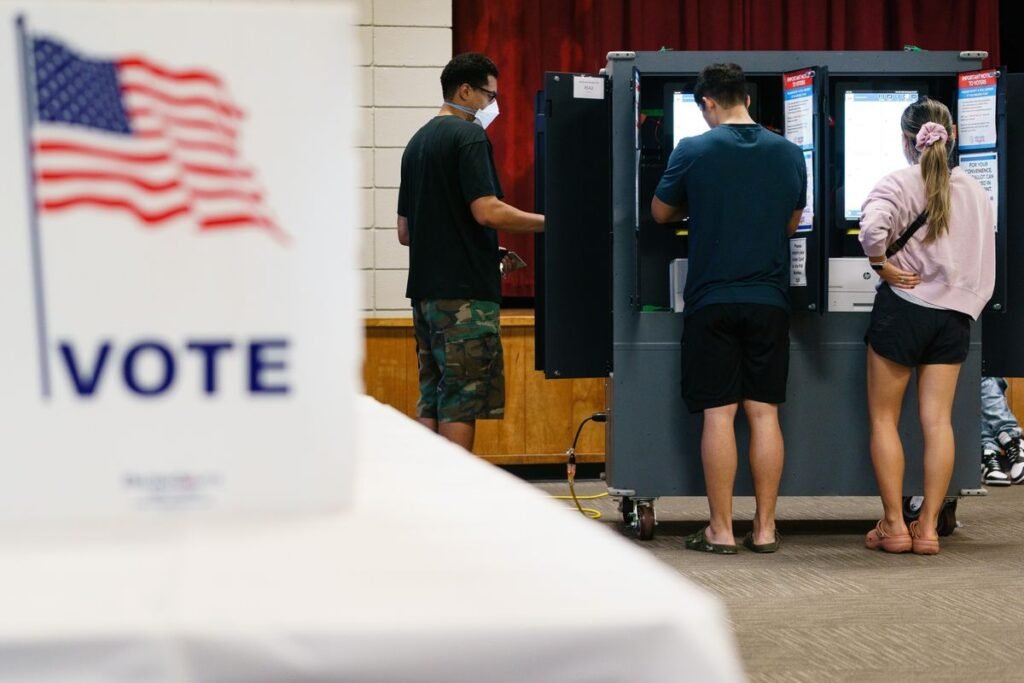Why does US ballot counting take so long?
The balance of power in the US Congress following Tuesday’s midterm elections is still up in the air, with several key races yet to be called some 48 hours after many polls closed.
In the United States, where elections are typically called by the media on the basis of votes tallied by county clerks and other officials as well as statistical analysis, a cliffhanger-style multiday wait for results is rare.
There are a number of reasons why the procedure can drag on, despite the fact that the lengthy delays may irritate American voters and prompt queries from interested foreign observers.
To begin with, each of the 50 states has its own laws and elections in the United States are mainly decentralized. American voters can choose between paper ballots and voting machines. Voting can be done in person or by mail.
On election day, some people vote. Some people vote in advance. Voting drop boxes are used by plenty of people. Republican U.S. Senator Marco Rubio of Florida voiced his displeasure as election officials in numerous states urged patience with the vote-counting process.
“If #Florida can count 7.5 million ballots in 5 hours how can it take days for some states to count less than 2 million?” Rubio tweeted Wednesday.
It can take some time to count the ballots that Americans use to vote for a variety of candidates and initiatives.
Things are taking longer now that voting by mail has become so popular since the COVID-19 pandemic; ballots can reach counting locations several days after an election. Ohio and Alaska keep track of arrivals that happen up to 10 days later.
In many states, election officials aren’t even permitted to start counting mail-in votes in advance, which makes matter worse.
Conspiracy theories are strengthened by the prolonged time required to complete the process, particularly following the 2020 election, which President Donald Trump falsely claimed was rigged in his favor.
For four days, no one knew who would win the race between Trump and eventual victor Joe Biden.
Georgia, a state in the southeast, had a unique impact on the 2020 election because the outcome of the state’s second-round vote determined the makeup of the U.S. Senate.
No candidate received more than 50% of the vote on Tuesday, so a runoff will be held on December 6 between Democratic incumbent Raphael Warnock and Republican challenger Herschel Walker. It is logistically difficult to hold elections in a nation with 333 million residents.
Rarely does the procedure go off without a few minor snags? For instance, this year’s election was marred by technical issues with one county’s voting equipment in Arizona.
It was cited as evidence of fraud by some Republicans, including Trump himself, but this was quickly refuted by authorities. Races can still be quite tight even without a technological issue, as some are in the election on Tuesday.
If the margin between candidates is too small, a recount is required by law in twenty states.
In one notable instance in 2000, when Texas Governor George W. Bush and Vice President Al Gore were vying for the White House, the nation held its breath for 36 days as the entire election depended on delayed results from one state, Florida. A razor-thin vote that forced a hotly fought manual recount was at the centre of the political crisis. The conflict ultimately reached the Supreme Court, which rendered a ruling in Bush’s favor that December.
